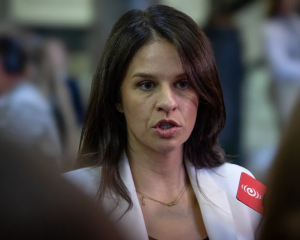Reporter Eileen Goodwin examines the once solid Labour seat of South Dunedin, which lost the party vote at the last election.
Just how the New Zealand Labour Party managed to lose the party vote in Dunedin South was asked many times after the 2011 general election.
That a once solid seat in a Labour town like Dunedin strongly voted National was held as symptomatic of Labour's identity crisis and dysfunction.
Strategists in both main parties will be eager to see whether the result was a one-off, or the start of a longer-term drift to National and other parties.
With 1837 more votes than Labour, National captured 40% of the vote.
The electorate was fairly evenly split between the right and left-leaning blocs, depending on where New Zealand First is placed.
Labour's poor showing was a sign of lost connection with the provinces, and the continuing fallout from cutting its natural support base loose in the 1980s.
No doubt it played a part in the promise to reopen Hillside Engineering Workshops, the announcement part of a Dunedin package unveiled by Labour leader David Cunliffe last month on a whirlwind tour of the city.
The workshops that once defined the area closed in 2012 because they were considered uneconomic.
In 2010, Hillside had been beaten by a cheaper offer from the China CNR Corporation to build flat-deck wagons for KiwiRail.
The party says new procurement rules will favour New Zealand, putting Hillside at the centre of a revived Dunedin engineering hub.
Whether the plan is realistic depends on Labour clarifying its approach to free trade agreements and the role of New Zealand manufacturing, on which the party appears ambivalent.
Labour's promise to stop the agricultural research Invermay campus, near Mosgiel, from losing its genomics team, might hurt National in the more well-off parts of the largely low-income electorate.
Resistance to Invermay losing the jobs to Lincoln, in Canterbury, cut across the political divide.
The Government's unwillingness to intervene in AgResearch's decision will have disappointed some National supporters.
High-level agricultural research jobs are unrepresentative of the electorate, which includes some of the most deprived people in New Zealand.
Both main parties are increasingly responding to the struggle of the low paid to afford healthcare.
However, neither party is likely to reduce the income wealth gap which sees many in the electorate struggle to afford basics.
The South Dunedin shopping area is anchored by bank branches, but is otherwise in poor health, as the retail dollar is concentrated on the thriving big box DIY and other stores closer to the harbour.
It is unlikely to receive much stimulus from a revived Hillside.
National's party vote win excited expectations the party might focus more attention on winning the electorate seat, which Labour MP Clare Curran held with a 4175-vote majority against low profile National candidate Joanne Hayes.
However, National selected a rookie, property manager Hamish Walker (29), who shows little sign of gaining traction on local issues.
National is sticking to the strategy of winning the party vote, emphasising its record in Government, including sound economic management and achievements in health.
There has been little good news locally for candidates to tout anyway.
The Dunedin mail-sorting centre was downgraded this year, with the loss of about 40 jobs.
About 90 jobs went in the closure of Hillside, where another 40 jobs were axed in 2011.
More widely in the city, many public sector jobs have been axed or shifted elsewhere.
One South Dunedin business leader said it did not matter to his shoe-making factory which party or MP was elected.
McKinlays Footwear owner Graeme McKinlay says the election was largely irrelevant to his concerns.
''Our biggest problem now is that to buy materials, or to buy anything for making shoes, we have to source it ourselves offshore, because there's no-one to support the industry in New Zealand, because there is no industry left in New Zealand.''
His next supply buying trip to Italy means he will miss the election anyway.
Back in 2011, part of the blame for Labour's party vote result was attributed to Ms Curran, whose style sometimes puts her at odds with people.
Speculation she might be challenged for the selection by party member Tat Loo did not eventuate, and now one of her harshest critics says his criticism of her was wrong.
Politics lecturer Dr Bryce Edwards - who in 2011 said Ms Curran might not even stand in 2014 - said Ms Curran had had a good second term. She gained traction on the Hillside closure, and was an effective local MP.
Ms Curran opted not to go on Labour's list, prompting speculation she was offered an unpalatable low ranking.
The move raises questions about her seniority in a future Labour-led Government.
As the party's ICT spokeswoman, she has not landed any big hits, but has been active and diligent in holding the Government to account in the complex area of IT policy and delivery.
Demoted by new leader David Cunliffe after falling out with him during the Labour leadership contest, Ms Curran continued to do the heavy lifting in the ICT portfolio, and in May regained the portfolio from her leader, who initially took the portfolio himself and made her an associate.












